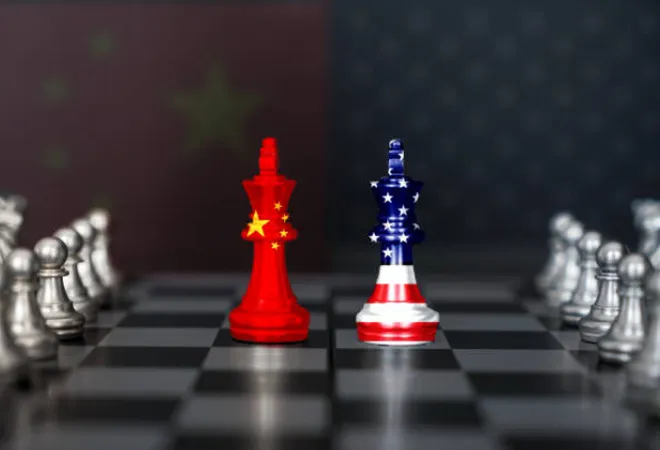-
CENTRES
Progammes & Centres
Location
The US’s diplomatic boycott of the 2022 Winter Olympics is setting the stage for the addition of another dimension to the US-China saga of widening confrontation

The International Olympic Committee (IOC) has been reluctant to raise difficult issues with China, underlining that it maintains a “neutral” position on political issues.Washington is today unanimous in viewing China as a strategic competitor with whom the areas of convergence are narrowing by the day. And sports is the latest domain where the geopolitical contestation has spilled over. The case of tennis player Peng Shuai, who disappeared from public view after she accused a top Chinese government official of sexual assault, has led to global concerns. In a bold stance against a huge commercial market, the Women's Tennis Association (WTA) has gone ahead with an effective boycott of China by suspending all tournaments there over the issue of Peng Shuai. In contrast, the International Olympic Committee (IOC) has been reluctant to raise difficult issues with China, underlining that it maintains a “neutral” position on political issues. Condemning the US move, China has accused the US of violating “political neutrality in sport” and threatened “resolute counter-measures.” Other nations like the UK, Canada and Australia have also joined in the boycott while China has been able to get explicit support from Russian President, Vladimir Putin who will be attending the Opening Ceremonies of the Beijing Olympics and also meet Xi Jinping in person. In return for Putin’s gesture, Xi has supported Russian demand for written security guarantees from NATO that it would not expand eastward and would not station weapons in Ukraine that could threaten Russia. It is interesting that countries like Italy and France have declined to join the boycott, with President Macron describing it as “symbolic and insignificant.” The EU as ever remains reticent in taking on China so frontally though as far back as July itself the European Parliament had called on EU governments to “decline invitations for government representatives and diplomats to attend the Beijing 2022 Winter Olympics unless the Chinese government demonstrates a verifiable improvement in the human rights situation in Hong Kong, the Xinjiang Uyghur Region, Tibet, Inner Mongolia and elsewhere in China.” The move by the US is for sure a largely symbolic move which in unlikely to dampen the splendour of the Games. It merely allows Washington and its close allies to make a point while not going all out in terms of a full boycott. For most of the world, this will hardly make a difference and China is unlikely to change any of its policies and behaviour because a few diplomats are not attending the games. In the US, however, there is a rare bipartisan support for this move though some policymakers have called it a “half measure,” arguing that the Biden administration should have opted to “fully boycott” the games. But whatever be the merits of the US approach, the 2022 Winter Olympics have become one of the most contentious Olympics in recent memory and the legacy of the 1936 Berlin Olympics continues to shape this debate.
That Xi Jinping’s aggressive foreign policy and Chinese Communist Party’s brutal authoritarian agenda cannot go unchallenged is now well established.The challenge that Xi Jinping’s revisionist reign poses to the world may not be yet in the same mould as the one Hitler had posed but the inherent dangers in not standing up to Xi’s shenanigans are becoming clearer by the day. And that’s the reason this campaign to boycott Beijing Olympics has gained so much traction with the civil societies and nation states alike. And China itself has been at the forefront of using sports as an instrument of its political agenda, be it its own boycott of the Melbourne Olympics in 1956 or pressurising private sector time and again by dangling its market as a tool to silence critics. That Xi Jinping’s aggressive foreign policy and Chinese Communist Party’s brutal authoritarian agenda cannot go unchallenged is now well established. But whether the Olympic boycott would help remains a matter of contestation. Xi Jinping is likely to double down on his hard-line approach as his international legitimacy declines and the only way he can shore up his credibility at home is by becoming even more adversarial towards the outside world. What is not in doubt, however, is that in an age of intensified great power competition, sports are likely to emerge once again as the theatre where this rivalry will be played out ever more concertedly.
The views expressed above belong to the author(s). ORF research and analyses now available on Telegram! Click here to access our curated content — blogs, longforms and interviews.

Professor Harsh V. Pant is Vice President – Studies and Foreign Policy at Observer Research Foundation, New Delhi. He is a Professor of International Relations ...
Read More +